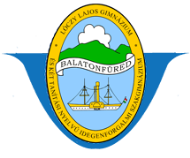Can we consider Heuristics a Science?
Motto: „…every rational theory, no matter whether scientific or philosophical,
is rational insofar as it tries to solve certain problems.
A theory is comprehensible and reasonable only in its
relation to a given problem situation, and it can be
rationally discussed only by discussing this relation.”
(Sir Karl Popper)
Heuristics stand at the junction where Methodology, Didactics, Psychology, Artificial Intelligence, Philosophy and History of Science intersect; mathematical ideas at the crossroads where heuristic thinkers, who work, or worked formerly in a domain, meet.
All these sciences answer different questions, but they all agree that Heuristics presents the problem situation. The question is how it can be represented when explication involves the problem of discussion when explication is itself the problem of discussion. One way of representation is to describe the language of the problem; another is to reconstruct its history and there are various models from Cognitive Sciences to Artificial Intelligence which attempt to capture the way we think when we solve problems.
Heuristic reasoning models exploit the information processing structure of the reasoning system and the components of the problem space to produce conjectures when exact solutions, final proofs, or computational resources for finding the perfect correct answer might not exist. I review those developments since Douglas Lenat’s AM and Eurisco which utilize considerations belonging to the intersection of various scientific fields that externalize, objectify and augment our reasoning and learning processes. Underlining the didactic and cognitive advantages of such solutions as Mathcraft, I argue that the promise of unification of these fields relies on the experimental epistemology that is a common divisor of the emerging science of Heuristics which outgrew itself and became a subject of reinterpretation.
András G. Benedek, PhD, CSc, (Budapest, 1956) works in the field of Learning Sciences and Dynamic Epistemic Logic as senior research fellow of the Institute of Philosophy at the Research Centre for the Humanities, Hungarian Academy of Sciences. As former head of the Department of Logic, Pázmány Péter Catholic University he directed DE Program Development at the Faculty of Law and Political Sciences and worked as director of e-Didactic Knowledge Center of LSI Information Technology Learning Center. In addition to several Hungarian universities he taught at the St. Johns University, in Summer Schools of the Central European University and in the international program of the Budapest Semesters in Mathematics. He was a postdoctoral research fellow at The Queen’s College, Oxford, and the London School of Economics (Lakatos Foundation) university scholar at the University of Notre Dame (Indiana), research fellow at the Catholic University of America (Washington, D.C., Centre for the Study of Culture and Values, RVP) visiting scholar at the University of Illinois at Chicago. Participated in researches of the Hungarian Scientific Research Fund, was coordinator of various EU projects as international advisor of APERTUS Public Foundation. He was responsible for e-content and program development as Director of Education of EDUWEB PLC. He was Science Director of the Mobil Multimedia based Knowledge Transfer project in the framework of the Economic Development Operative Program of the New Hungary.






